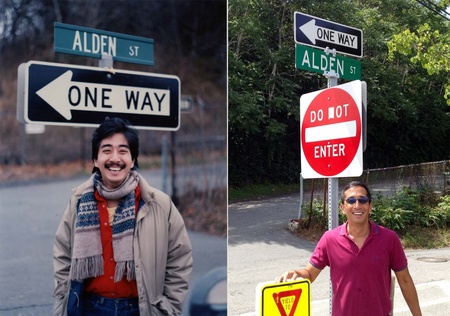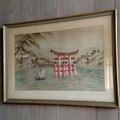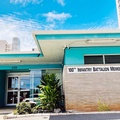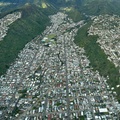When I was in my twenties, struggling to find my way through life, I very much identified as a gay man. At the time, being Japanese American was more like a minor footnote of my existence, much to the considerable consternation of my Nisei parents. My father, who was then president of the Honolulu Hiroshima Kenjinkai, must have been particularly disappointed that I showed so little interest in my ethnic and cultural heritage.
I think that my strong identification with being gay had much to do with the AIDS epidemic. As a young gay man, I felt so vulnerable, with close friends dying and anti-gay vitriol intensifying throughout those terrible years. Things came to a head when my cousin Joey, a Broadway actor, was stricken with HIV. Joey was like my “Auntie Mame”—he taught me to enjoy life and to accept (and, more importantly, to forgive) myself for being gay. I am the man I am today because of him and, when he died a slow, agonizing death from AIDS-related complications in 1987, I was devastated. My grief became all the more acute because I really couldn’t talk openly to my parents about their nephew Joey, what he meant to me, how he had helped me to come out. My Sansei cousins and I had to be careful what we said in front of our Nisei relatives, because the last thing we wanted to do was to add to the pain of Joey’s parents.
I also had many friends who died horrible, excruciating deaths from AIDS and I couldn’t talk to my parents about any of that. I was living in Boston and they were living in Honolulu, where I was born and raised, and all our conversations over the phone tended to stick to anodyne topics like the weather and updates about relatives—what cousin was getting married or having babies, etc. Forget about any discussion of safe sex. When it came to condom usage, my mother would only say, “I hope you’re not doing anything stupid out there.”
Today, decades later, I feel much more threatened as an Asian American, more likely to be assaulted by racists than by gay bashers. I now feel that my fundamental identity is that of a Japanese American who happens to be gay, rather than as a gay man who happens to be Japanese American. Living in Boston, I now make sure that my cell phone is fully charged whenever I leave my apartment, just in case I might need to record some racist incident so that I’ll have video proof. I’ve also become aware of subtle things. The other month I was walking around the Back Bay neighborhood of Boston when I noticed a Chinese woman in the distance trying to figure out how the new parking meters work. She was standing there in frustration as a number of pedestrians (all white) walked by her. Then, as soon as she could make out my face, she came rushing toward me, motioning that she needed help. She didn’t speak much English at all, and I can’t speak a word of Mandarin, but somehow we were able to communicate. After I had showed how to use her credit card to pay the meter, she was so grateful, effusively thanking me several times, which was very touching yet also made me sad that she didn’t feel comfortable approaching anyone but a fellow Asian.
Ironically, it was my being gay that initially led me to turn away from the JA community, so afraid was I to be judged by the Issei and Nisei generations. In their eyes, I thought I had fallen far short of the “model minority” ideal, and I wanted to flee the shame I felt. Interestingly, I don’t think that any of my parents’ anti-gay prejudices came from any entrenched religious or moral objections. I think it was more of a “what will the neighbors think” fear that somehow my homosexuality would bring community shame through the front door of their home. I believe that my parents, who are now both deceased, regretted that that attitude kept them at arm’s distance from me when I was in my twenties, thirties, and even forties. We wasted so much time – time that can never be recovered. But thankfully we were able to reconnect with one another and have deep, intimate, meaningful conversations in their twilight years.
As I now reflect on things, having recently turned 62, I am so grateful to have lived long enough to experience my life having come full circle, as Japanese Americans have increasingly been embracing all of the beautiful diversity in our community. Thanks to websites like Discover Nikkei, I have become all the more proud of my Japanese heritage, and my voice feels so included and truly embraced as part of the rich Nikkei landscape. Somewhere up there, I believe my Nisei parents are smiling, knowing that, after a long journey with many detours, I was able to find my way home again as a Japanese American. But, as my mom and dad would tell me whenever I left their house in Honolulu to return to the mainland, “Your home will always be waiting here for you, always.” It’s taken me decades to realize that they were even more right than ever I could have imagined.

© 2021 Alden M. Hayashi





